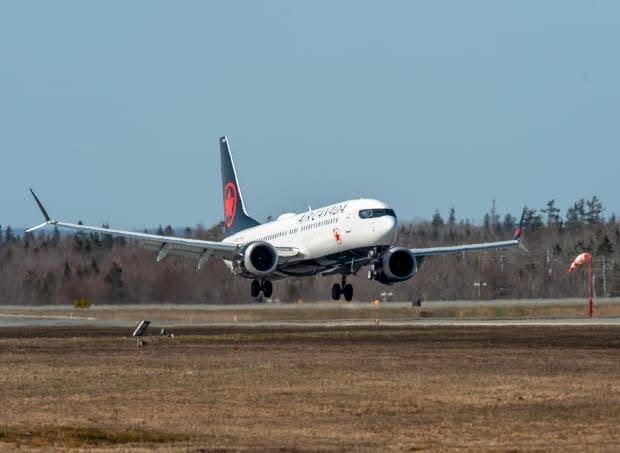Project to make jet fuel from waste fats, oils gets big financial lift from federal government

Almost 20 years of research to create renewable jet fuel from agriculture and forestry waste in Alberta has gotten a big boost from the federal government.
A group led by University of Alberta professor David Bressler has received a $2.89 million grant from Natural Resources Canada. The group has been working on a project to convert renewable materials — that are often already turned into biodiesel fuel — into fuel that can be used by jet engines.
Biodiesel is a fuel substitute made from sources like plant oils, waste cooking oil or animal fats. The result is a sustainable alternative with a lower carbon footprint than traditional fossil fuels.
Bressler, a professor of bioresource technology and fermentation, says biofuel is a quick and effective way to immediately meet increasing emission standards in the aviation industry.
"The aviation space is about two per cent of our carbon footprint out there, and it really has nothing in the short term that can help them reduce their carbon footprint," said Bressler on CBC Edmonton's Radio Active on Monday.
"As we're developing this, not only does it create that opportunity to blend with traditional fuels into traditional engines, it actually has better emissions criteria than some of the traditional petrochemicals."
The funding has allowed them to collaborate with researchers, engineers and students, and to invest in infrastructures like pilot plants and an advanced fuel testing suite. Currently, the group is working on scaling up biojet fuel to be ready for commercialization.
Bressler's group already has one potential site to develop biojet fuel. Forge Hydrocarbons, a company based on Bressler's research, is building a $30-million commercial plant south of Sarnia, Ont., to produce renewable gas and diesel
Biofuel for jets would be a timely advancement with the aviation industry facing pressure to reduce its carbon footprint. The industry has a goal to cut total CO2 emissions, which have been escalating for decades, in half by 2050.
Newly manufactured planes now often have a lifespan of 35 to 40 years and are difficult to retrofit, Bressler said. This makes renewable fuels an easy way to cut into emissions.
Bressler has been working with industry and government partners to convert waste fats and oils into biofuel since 2003. His hope is this effort will also create a market for agricultural and food producers to sell waste lipids like rendering fats, crop-based oils and corn oil.
"What really got me into this 20 years ago was looking at creating new value pathways for agriculture," said Bressler, a professor in the agricultural, life and environmental sciences faculty.
Bressler will be watching the Sarnia plant's success in producing fuel at a commercial scale. If that plant does well, he said he hopes it will lead to many more facilities including in western Canada.
"Hopefully, Plant Two lands in Alberta with the biojet module ready to go," Bressler said.

 Yahoo Finance
Yahoo Finance 